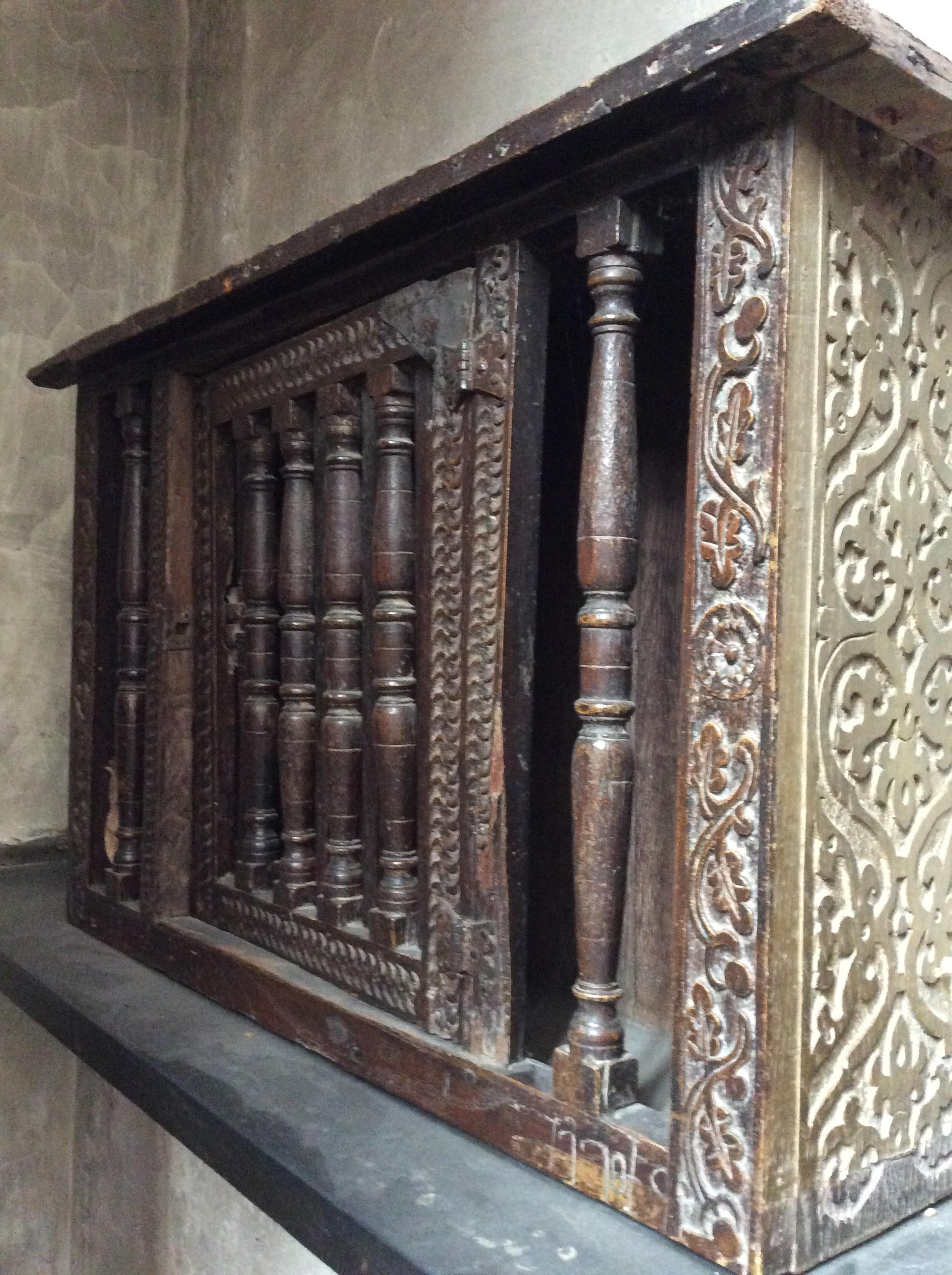
The Dole Cupboards – three in all – once held bread for the poor and date from 1628.
If you were poor in the Middle Ages, the Benedictine monastery and abbey at St Albans might provide a dole of bread and measure of beer, provided there were any leftovers from the monks’ table.
The almoner, a ‘wise brother of mature age’, was stationed by the gate so that ‘as soon as anyone shall knock, or a poor person shall beg for charity, he shall answer “God bless you” and then, with all the gentleness of the fear of God, quickly respond in the fervour of charity.’
The itinerant poor seeking shelter for the night shared dormitories above the stables with pilgrims and monastic labourers.
The renowned St Albans chronicler Matthew Paris recorded a prolonged famine in 1258-59, which resulted in the deaths of 15,000 people in London alone. Their remains, found in a mass grave, showed signs of malnutrition.
Almshouses for the poor date from around 1450 but the first recorded in St Albans was established in 1569, after the dissolution of the monasteries.




